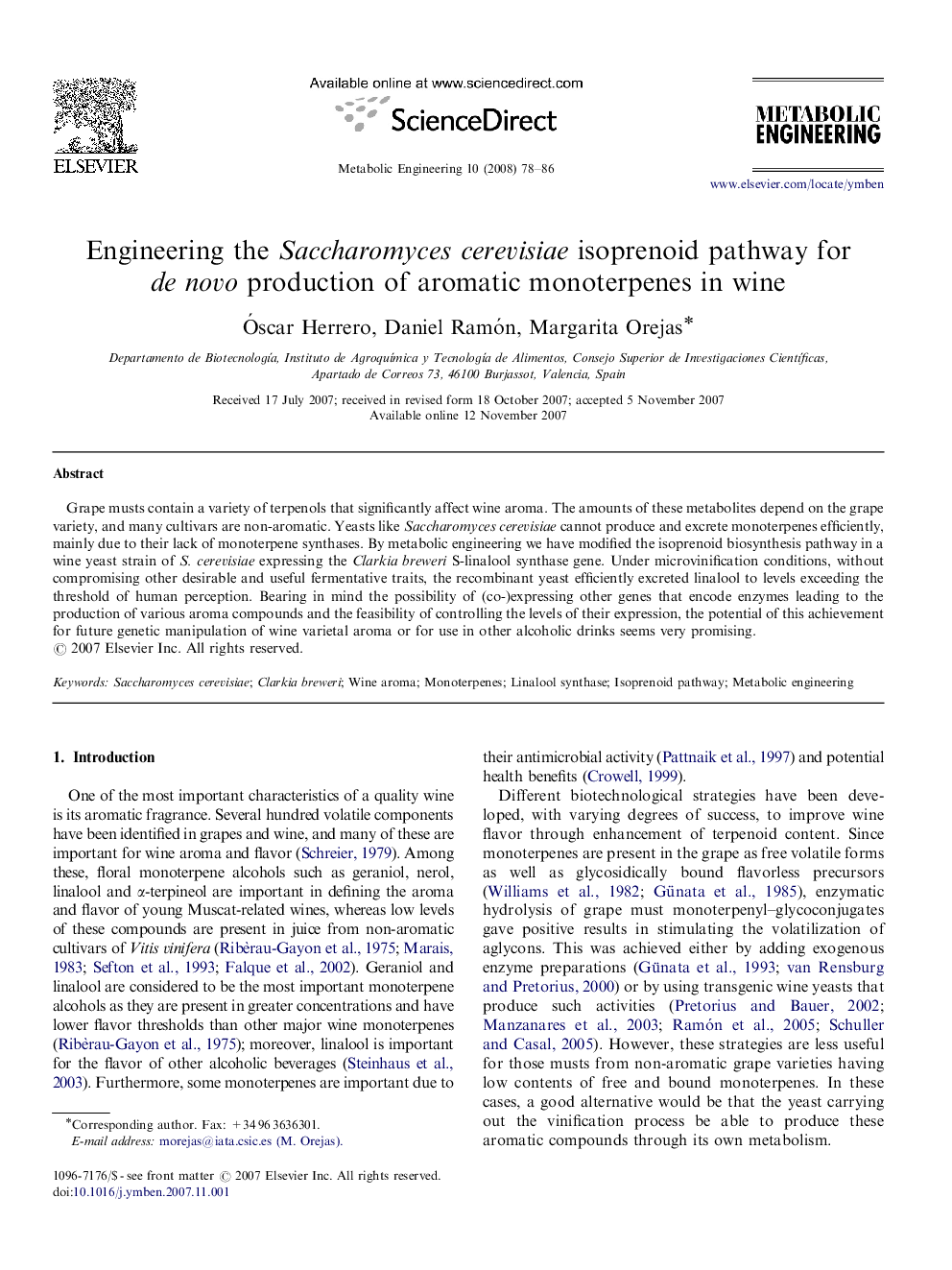| Article ID | Journal | Published Year | Pages | File Type |
|---|---|---|---|---|
| 31905 | Metabolic Engineering | 2008 | 9 Pages |
Grape musts contain a variety of terpenols that significantly affect wine aroma. The amounts of these metabolites depend on the grape variety, and many cultivars are non-aromatic. Yeasts like Saccharomyces cerevisiae cannot produce and excrete monoterpenes efficiently, mainly due to their lack of monoterpene synthases. By metabolic engineering we have modified the isoprenoid biosynthesis pathway in a wine yeast strain of S. cerevisiae expressing the Clarkia breweri S-linalool synthase gene. Under microvinification conditions, without compromising other desirable and useful fermentative traits, the recombinant yeast efficiently excreted linalool to levels exceeding the threshold of human perception. Bearing in mind the possibility of (co-)expressing other genes that encode enzymes leading to the production of various aroma compounds and the feasibility of controlling the levels of their expression, the potential of this achievement for future genetic manipulation of wine varietal aroma or for use in other alcoholic drinks seems very promising.
